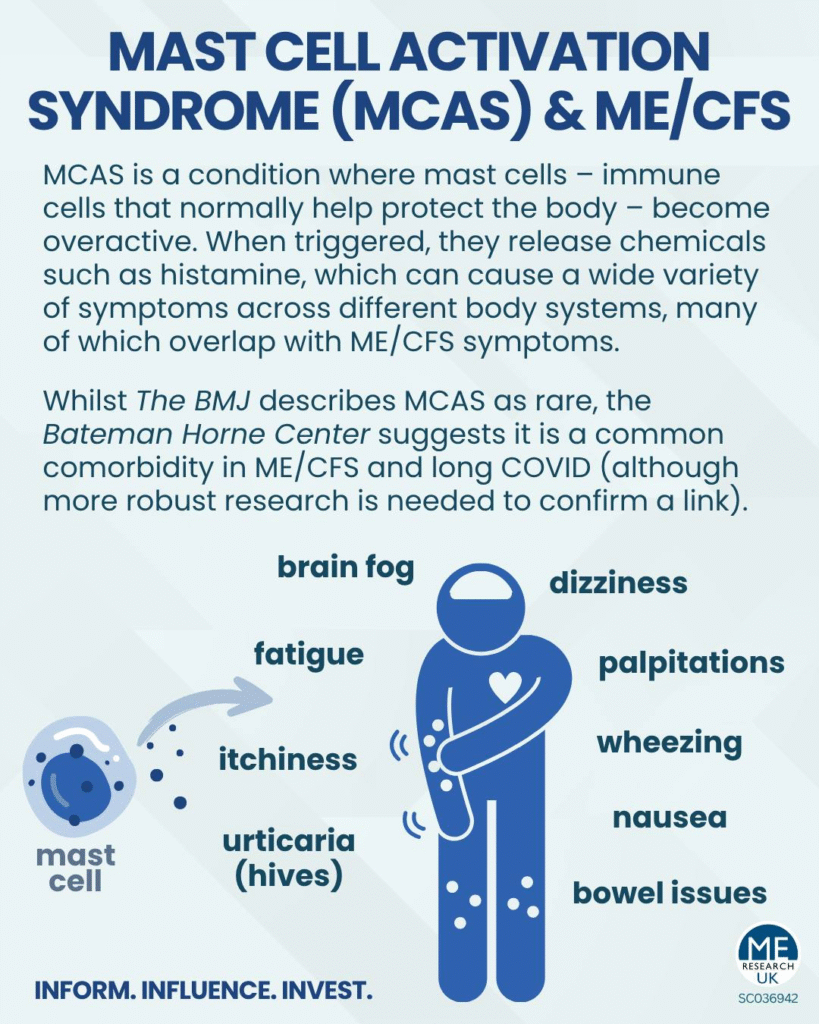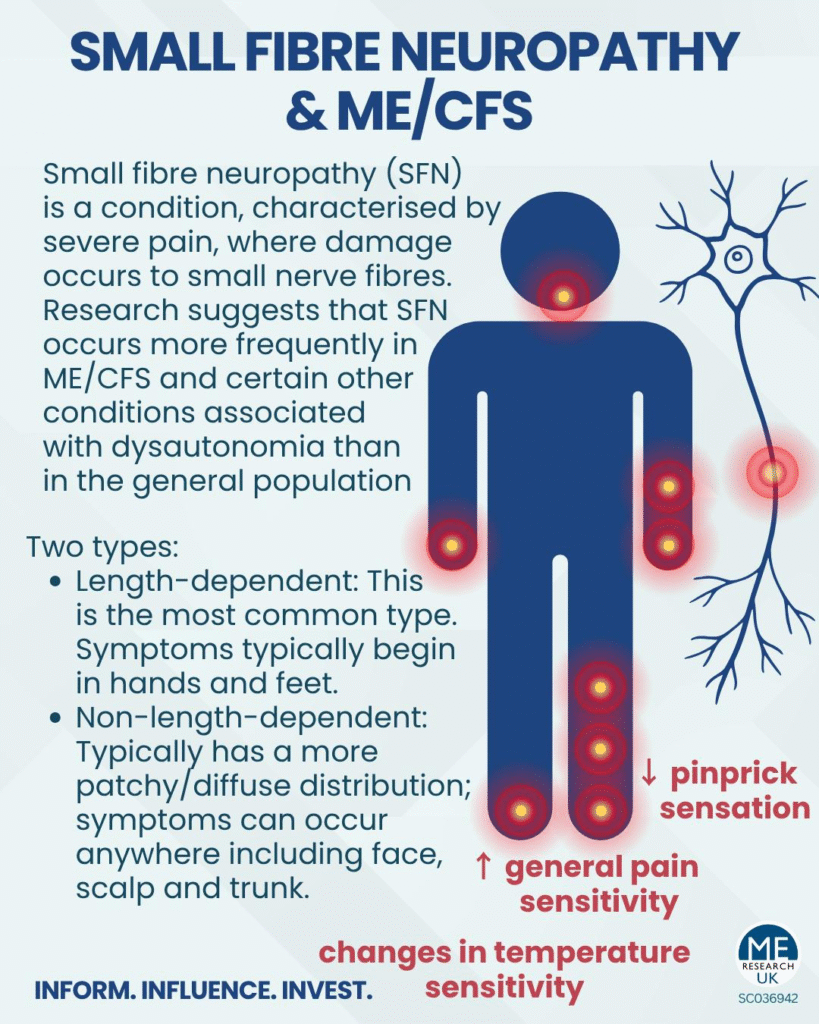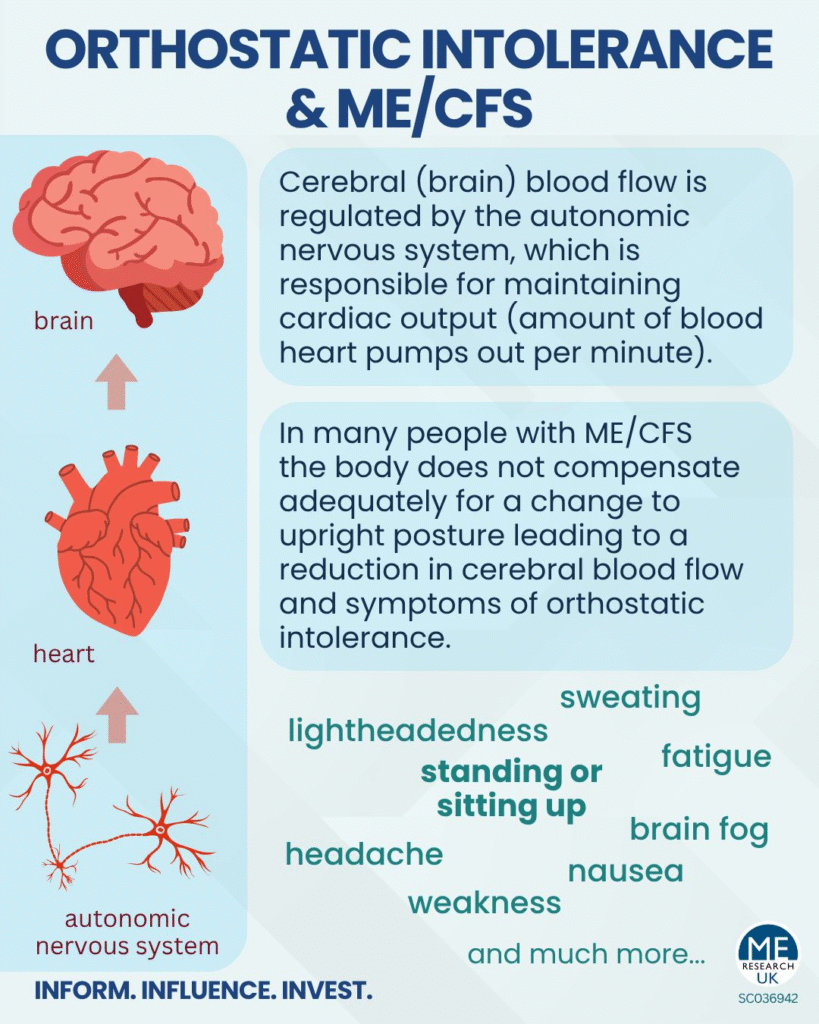Dysautonomia is an umbrella term that encompasses a broad range of conditions that affect the autonomic nervous system – the body system that regulates automatic functions such as blood pressure, heart rate, temperature, and digestion. There are many conditions that fall under the dysautonomia umbrella such as postural orthostatic tachycardia syndrome, orthostatic intolerance, orthostatic hypotension, and multiple system atrophy. Furthermore, dysautonomia can often co-exist with, or occur secondary to, other conditions such as mast cell activation syndrome, Ehlers-Danlos syndromes, small fibre neuropathy, and gastroparesis.
Here are a collection of our articles related to dysautonomia:
What is Dysautonomia?
As the autonomic nervous system (ANS) is so far-reaching in function, it is no surprise that the symptoms of dysautonomia (dysregulation of the ANS) are so varied. These can include, but are not limited to, brain fog, vision problems, palpitations, nausea and temperature dysregulation. Many of these symptoms overlap with ME/CFS, and often individuals with ME/CFS have a co-existing dysautonomia-related diagnosis, commonly PoTS (a form of orthostatic intolerance with elevated heart rate). Throughout October 2025, ME Research UK marked Dysautonomia Awareness Month.

What is MCAS?
Mast cell activation syndrome (MCAS) is a condition where mast cells, which are usually quite helpful immune cells, work against individuals by producing too many chemicals like histamine (which contributes to inflammation). MCAS has many symptoms and many triggers, such as stress, caffeine, certain foods, exercise (to name a few!).

What is small fibre neuropathy (SFN)?
Small fibre neuropathy (SFN), a condition where damage occurs to small nerve fibres, is characterised by severe pain typically beginning in the extremities. Research suggests SFN occurs more frequently in ME/CFS and certain other conditions associated with dysautonomia than in the general population.

Orthostatic intolerance and ME/CFS
Orthostatic intolerance is a common issue for people with ME/CFS where the body fails to properly compensate for moving to an upright position, which can result in various symptoms. A subset of those with orthostatic intolerance also meet the criteria for postural orthostatic tachycardia syndrome (PoTS), which involves an excessive increase in heart rate.

Ehlers-Danlos Syndromes (EDS) and ME/CFS
Ehlers-Danlos Syndromes (EDS) is an umbrella term for a group of connective tissue disorders that result in a variety of symptoms and complications, such as joint dislocations and issues with internal organs. Many individuals with EDS also have ME/CFS and dysautonomia.

What is PoTS?
Postural orthostatic tachycardia syndrome (PoTS) is a debilitating, under-recognised condition and co-morbidity of ME/CFS. It is characterised by an abnormal rise in heart rate, in addition to other symptoms, when a person transitions to an upright position.

Gut disorders, dysautonomia, & ME/CFS
Dysautonomia can significantly impact the gastrointestinal system by disrupting control over gut function, leading to various symptoms and conditions such as gastroparesis. A disrupted microbiome (community of microorganisms in the body), often implicated in ME/CFS, is also thought to have an influence on the autonomic nervous system.


Read about the debilitating nature of ME/CFS and the research being conducted




